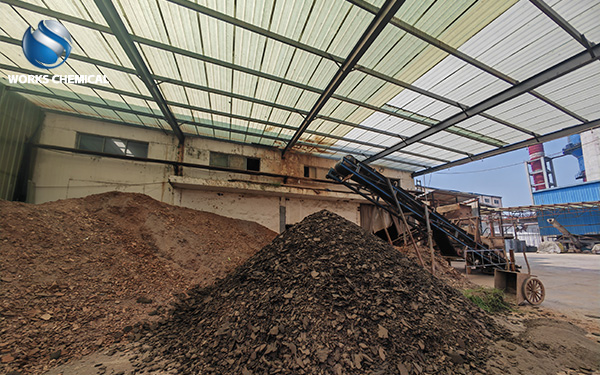
During the sewage treatment process, a large amount of sludge is produced, and the treatment of this sludge has always been an important issue in the field of environmental protection. Sludge enhancer, as a chemical agent specifically designed to improve the dewatering performance of sludge, can effectively solve many problems in the sludge treatment process.

Sludge enhancers can reduce the moisture content of sludge. It can destroy the colloidal structure in sludge, reduce the viscosity of sludge, and make sludge particles easier to separate and dewater. Through chemical conditioning, sludge enhancers can significantly reduce the moisture content of sludge, typically lowering it from over 90% to 40%-60%, or even lower. This highly efficient dewatering effect not only reduces the volume of sludge but also facilitates subsequent transportation, storage and disposal. During transportation, smaller-sized sludge can reduce transportation costs. It can also reduce the occupied space during the storage process. When disposing of it, a lower moisture content is also more conducive to subsequent treatment processes.
Sludge enhancers can enhance the dewatering efficiency of sludge. Compared with traditional dewatering methods, the use of sludge enhancers can significantly accelerate the dewatering speed, shorten the dewatering time, and reduce the operation time and energy consumption of dewatering equipment. This helps to enhance the overall efficiency of sludge treatment and reduce treatment costs. In some large-scale sewage treatment plants, improving dewatering efficiency means that more sludge can be processed in a shorter time, enhancing production efficiency and also saving energy costs.
The use of sludge enhancers can also optimize the sludge treatment process. Due to the improvement of the colloidal structure and viscosity of the sludge, some cumbersome pretreatment steps, such as long-term stirring and pH value adjustment, can be simplified or omitted. Meanwhile, sludge enhancers can also enhance the sludge pressing efficiency of mechanical equipment (such as plate and frame filter presses) and shorten the sludge pressing cycle. This makes the entire sludge treatment process more concise and efficient, reducing manual operation and equipment running time, and further lowering the treatment cost.
Traditional water treatment agents, such as lime, may cause corrosion or blockage to equipment during use. The sludge enhancer does not contain corrosive components such as chloride ions and will not cause corrosion to the equipment. Meanwhile, as it can improve the fluidity of sludge, it reduces the clogging of sludge to dewatering equipment and lowers the maintenance cost of the equipment. The stable operation of equipment is crucial for the normal production of sewage treatment plants. Reducing equipment maintenance costs can enhance the economic benefits of enterprises.
Sludge treated with sludge enhancers is more conducive to subsequent disposal methods such as incineration, brick-making and composting. After dewatering, the moisture content of the sludge decreases and its volume reduces, which is convenient for subsequent transportation and storage. Meanwhile, some components in the sludge enhancer can also be used as pre-added auxiliary accelerators in the subsequent treatment process, further enhancing the efficiency of the subsequent treatment. During the incineration process, sludge with a lower moisture content burns more fully and generates more heat. It can also improve the quality of products and production efficiency during the brick-making and composting processes.
Sludge enhancers are widely used in the sludge pre-concentration and sludge dewatering processes of urban sewage treatment plants and various industrial and domestic sewage treatment facilities. It has a strong adaptability to water quality. Whether it is the sludge produced in the treatment of domestic sewage or the sludge from industrial wastewater such as printing and dyeing, papermaking and electroplating, it can play a good role. This enables the sludge enhancer to be applied in various types of sewage treatment scenarios and has wide applicability.
In conclusion, sludge enhancers can effectively solve many problems in the sludge treatment process, including reducing moisture content, improving dewatering efficiency, optimizing treatment processes, reducing equipment corrosion and clogging, enhancing the efficiency of subsequent treatment, and having wide applicability. Today, with increasingly strict environmental protection requirements, sludge enhancers offer an efficient and environmentally friendly solution for sludge treatment and have significant application value.